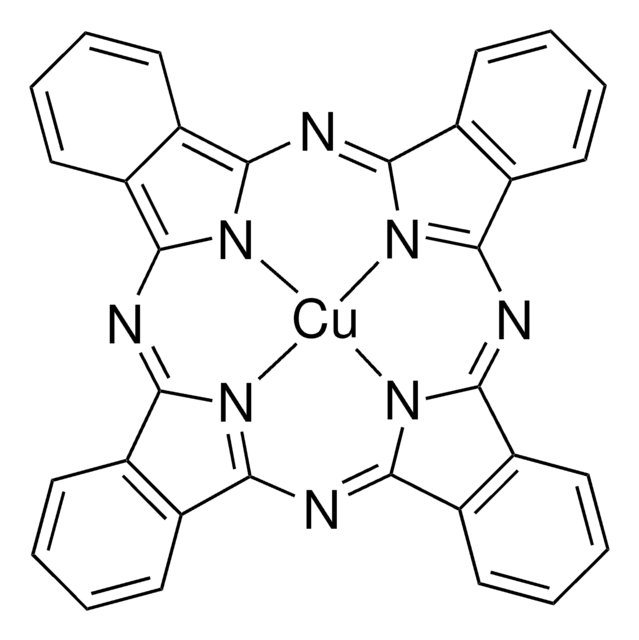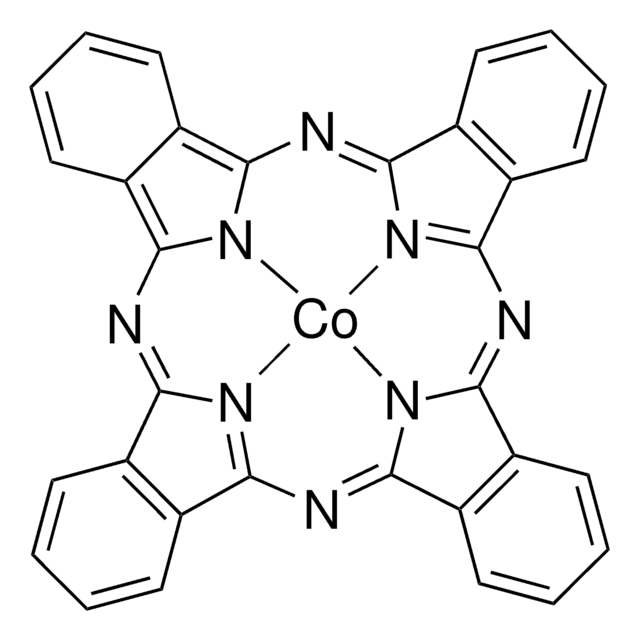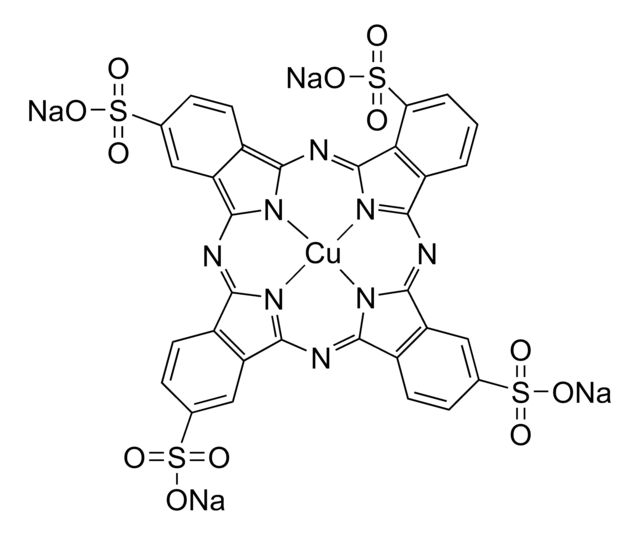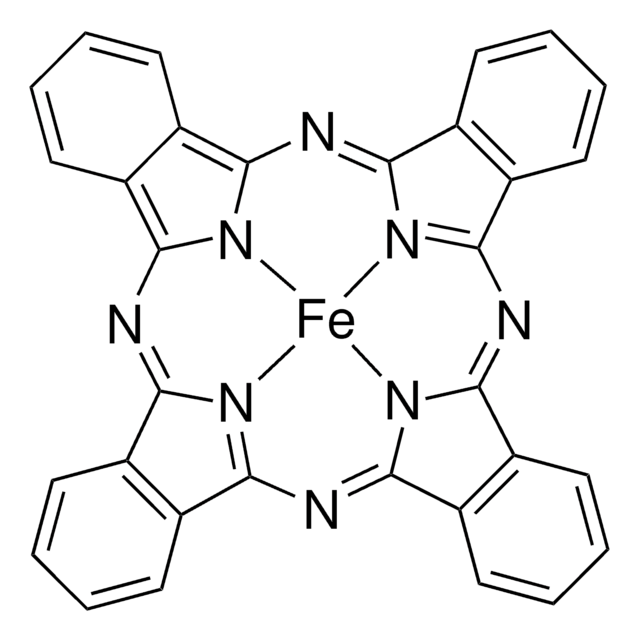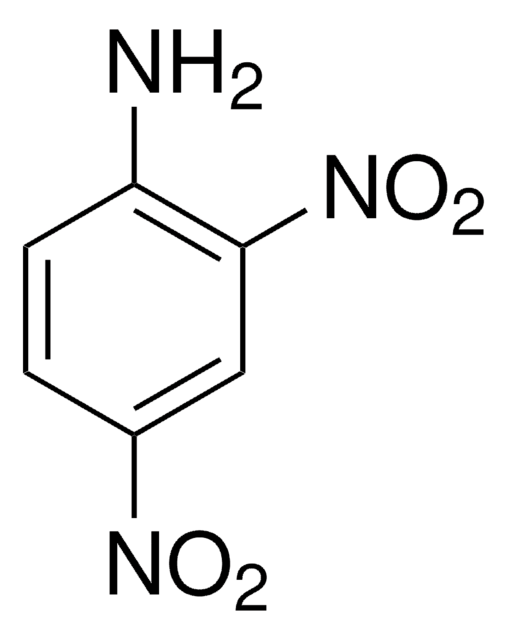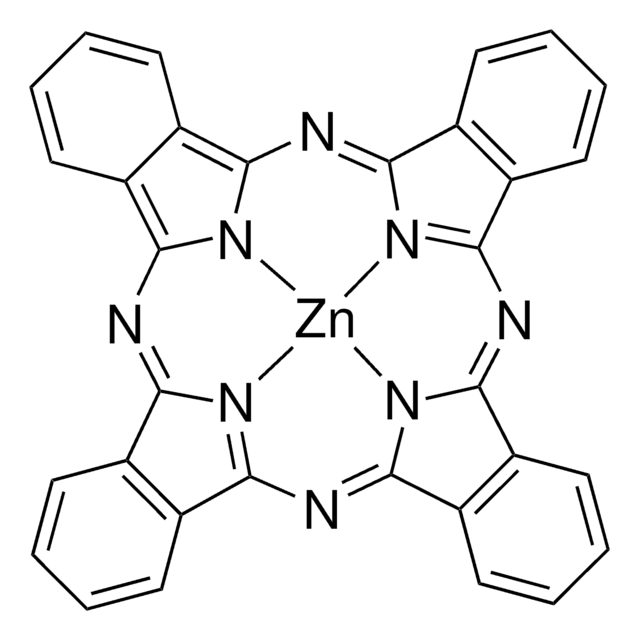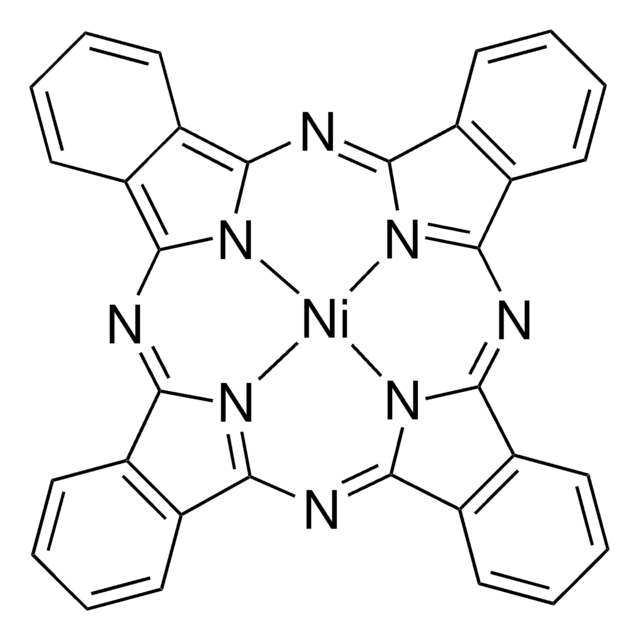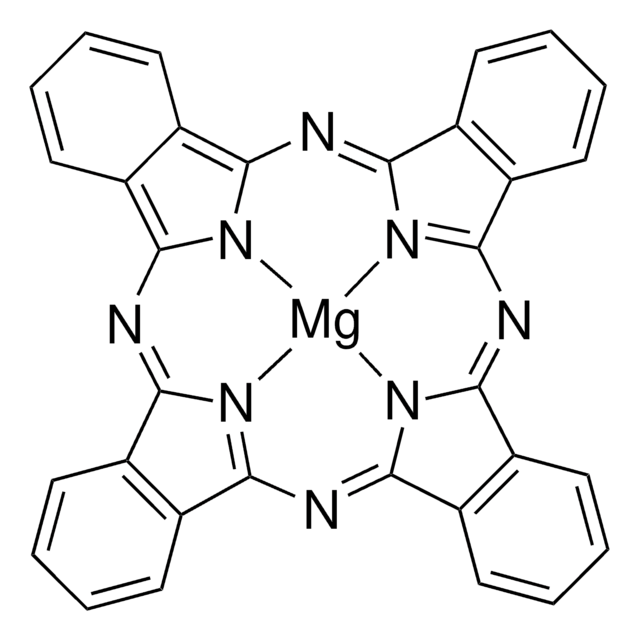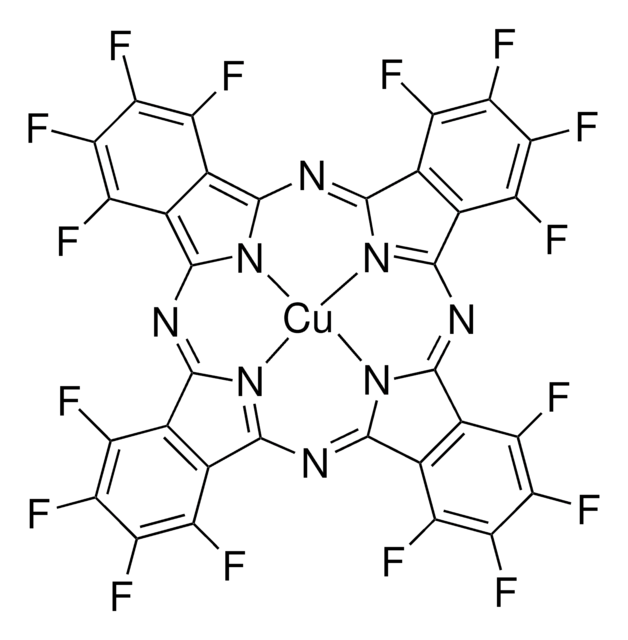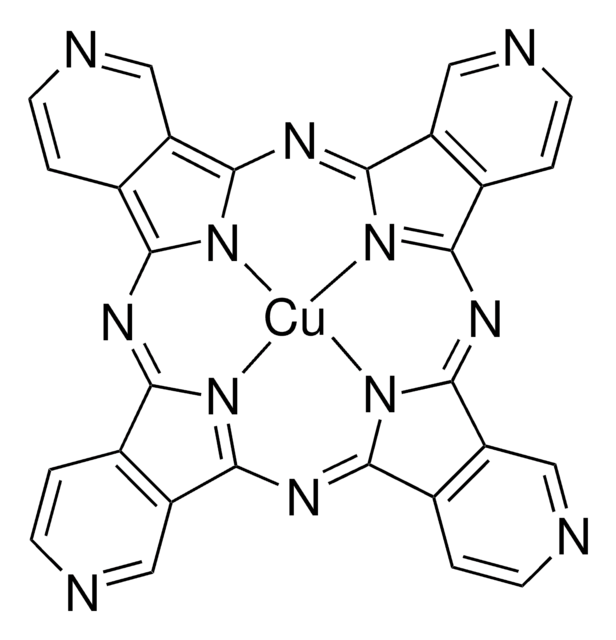252980
Copper(II) phthalocyanine
β-form, Dye content 90 %
Synonym(s):
CuPc, Phthalocyanine blue, Pigment Blue 15
About This Item
Recommended Products
composition
Dye content, 90%
λmax
678 nm
OLED device performance
ITO/CuPc/NPD/Alq3/C60/Mg:Ag
ITO/CuPc/NPD/Alq3/LiF/Al
ITO/CuPc/NPD/CBP:FIrpic (6%)/BAlq3/LiF/Al
OPV device performance
ITO/CuPc/PTCDA/In
ITO/PEDOT:PSS/CuPc/C60/BCP/Al
SMILES string
c1ccc2c(c1)C3=NC4=[N@@H]5C(=Nc6n7c(N=C8c9ccccc9C%10=[N@@H]8[Cu]57N3C2=N%10)c%11ccccc6%11)c%12ccccc4%12
InChI
1S/C32H16N8.Cu/c1-2-10-18-17(9-1)25-33-26(18)38-28-21-13-5-6-14-22(21)30(35-28)40-32-24-16-8-7-15-23(24)31(36-32)39-29-20-12-4-3-11-19(20)27(34-29)37-25;/h1-16H;/q-2;+2
InChI key
XCJYREBRNVKWGJ-UHFFFAOYSA-N
Looking for similar products? Visit Product Comparison Guide
Storage Class
11 - Combustible Solids
wgk_germany
nwg
flash_point_f
Not applicable
flash_point_c
Not applicable
ppe
Eyeshields, Gloves, type N95 (US)
Choose from one of the most recent versions:
Already Own This Product?
Find documentation for the products that you have recently purchased in the Document Library.
Customers Also Viewed
Articles
While dye sensitization as the basis for color photography has been accepted for a very long time,1 attempts to use this principle for the conversion of solar light to electricity generally had resulted only in very low photocurrents, below 100 nA/cm
Our team of scientists has experience in all areas of research including Life Science, Material Science, Chemical Synthesis, Chromatography, Analytical and many others.
Contact Technical Service